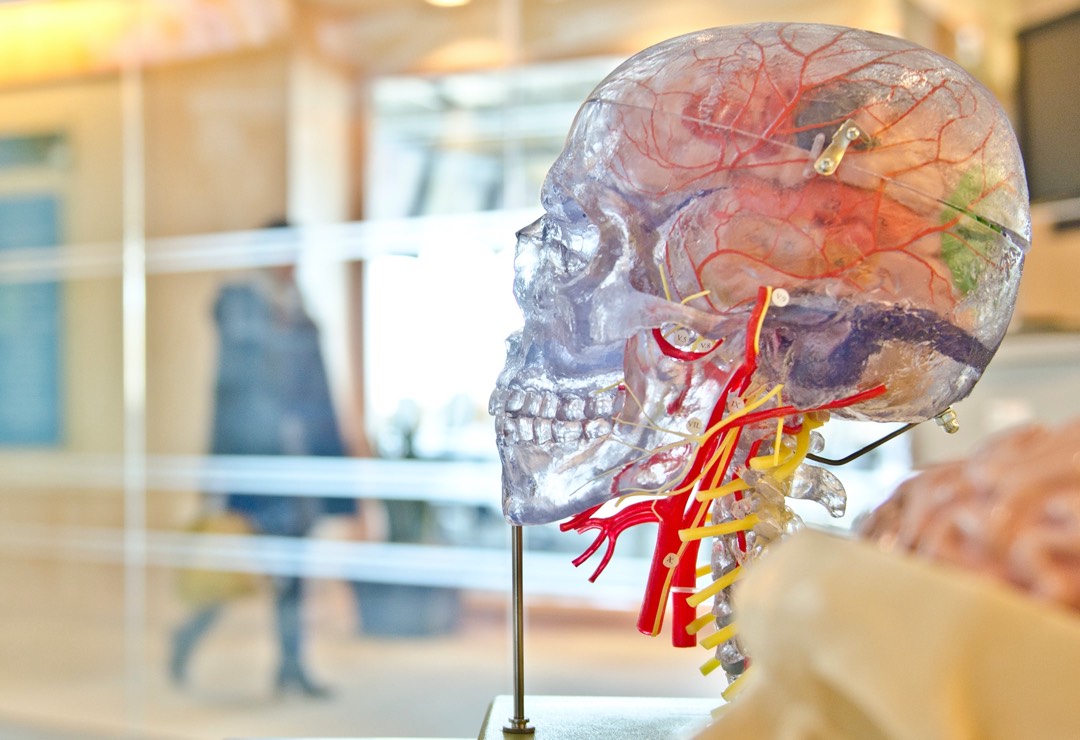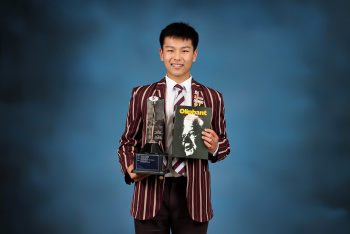
South Australian Science Teachers Association
Trophy Winner 2024: Caleb Tang's Oliphant Journey
Posted by Oliphant Science Awards
on 13/05/2025

What inspired your winning Oliphant Science Awards project?
During year 11 I was fortunate enough to complete a work experience placement at a pathology lab, Clinpath, and this included their microbiology department. Bacteria and microbiology were areas that we had received very little exposure to throughout school and in the science curriculum, but always something that I was quite fascinated by – how these essentially invisible, yet at the same time seemingly omnipresent blobs of an organism are so crucial to the ways our bodies and the environment around us function, and how they may also contribute to dysfunction.
This was my first introduction into the world of microbiology, and so at the start of year 12 when I was given the opportunity to write a research paper on a topic of my choice as part of my extended essay for my IB diploma, I knew I wanted to involve bacteria in some way. Many of the bacteria that I was interested in investigating were pathogenic and therefore deemed ‘unsafe’ to experiment on in the school laboratory (understandably so), but one night while researching the pathogenesis of acne, a condition I had struggled with at the time, I stumbled across a newly published paper discussing recent findings on the role of a non-pathogenic bacteria Staphylococcus epidermidis in regulating levels of the pathogenic acne-causing bacteria Cutibacterium acnes.
This fascinating interaction between the two bacteria laid the foundations for my project. My exploring of the effects of different coloured light treatments was inspired by the increasing popularity of LED face masks for cosmetic acne treatment that I had observed at the time, and all the different colours and wavelengths of light that they used. This was underpinned by the fact that very little was known at the time about how different coloured light treatments actually impacted population size of Staphylococcus epidermidis, or the exact mechanisms behind how light may inactivate Staphylococcus epidermidis, which is what I set out to explore.
What impact did participating in the Oliphant Science Awards have on you at school and beyond?
I think above all else, participating in the Oliphant Science Awards each year encouraged me to challenge myself in new and different ways, and expand beyond what I was exposed to through the school curriculum. Even from the beginning of my journey with the Oliphant Science Awards, having a long-term project to work on and chip away at in the background of my busy school life taught me very many valuable lessons in time-management and self-discipline.
Learning to balance my Oliphant Science projects alongside schoolwork, footy, chess, piano, and everything else I had going on at the time helped me build a really strong work ethic and desire to learn quite early on, as well as teaching me to find enjoyment in not just admiring a completed project, but also reflecting on the process, and overcoming all the challenges, big or small, that come up along the way.
These skills continued to benefit me throughout school as my workload continued to get bigger and bigger each year, yet I still strived to attempt to submit a bigger and better project into the Oliphant Science Awards each year. Even beyond school now, I think having that continued desire to keep learning and keep busy, which originated from engaging in extracurricular pursuits such as the Oliphant Science Awards, continues to fill my life with so much to look forward to each day, and keeps me curious and motivated to seek out new challenges.
Did the Awards influence your passion for science or your study/career direction?
Definitely. Growing up, science was certainly not one of my favourite subjects at school. Nor my second favourite. Nor my third. But through engaging in the Oliphant Science Awards, I was really exposed to a whole new perspective of science, not just as a subject at school, but as an ever-evolving field, with seemingly infinite possibilities. Participating in the Oliphant Science Awards provided me with a very hands-on approach to learning, and provided me with an avenue and rare opportunity outside of school to use theoretical knowledge to inform practical undertakings in a topic of my own personal interest.
This helped me realise that this is something that I want out of my career as well; something practical and hands on, where I can see the positive impacts of my work come to life in real time, and also something that would challenge me, keep me thinking, and keep me wanting to learn more, whilst being able to do good for the world. I am currently pursuing a degree in medicine, and so far, it has ticked all of those boxes for me.
Do you have a favourite memory or story from your Oliphant journey that you’d love to share?
Maybe not my favourite memory, but definitely a memorable one, was in year 7 in the waiting room just before my interview for my computer programming and robotics submission, I realised that one part of my smart garbage truck project, the actual arm mechanism for grabbing and tipping the bins, had suddenly out of nowhere stopped working, despite operating flawlessly all morning at home and the night before. In that waiting room, I vividly remember scrambling to try to get the issue fixed, checking all my wiring, the batteries, reuploading the code and inspecting all the sensors, but just nothing could get it to work.
And so when I was called up to the judging room, I had no choice but to explain to the judges that this feature of my project had stopped working for some reason, and confess that I didn’t actually know why. I felt so disappointed in myself coming home that day, sipping sadly on my sugar cane drink that my mum had bought from the Central Markets in hopes of cheering me up, and thinking that all of my work had gone to waste.
And then as soon as I got home and tested out my project again, it worked faultlessly again as if nothing had ever happened. To this day, I still have no idea why the arm mechanism just stopped working, but it did teach me that not everything will always go my way, as well as the importance of being prepared for all sorts of unexpected situations to arise – I certainly made sure in future years to record video footage of my projects working beforehand to show the judges just in case something like this happened again, although it never did.
View Caleb's winning project Scientific Inquiry (11-12) project: To what extent does different coloured light affect the bacterial growth of Staphylococcus epidermidis measured in terms of the colony size (CFU/mL) after 30 minutes of light treatment under each colour.
Archive
- February 2026
- January 2026
- December 2025
- November 2025
- October 2025
- September 2025
- August 2025
- July 2025
- June 2025
- May 2025
- April 2025
- March 2025
- February 2025
- January 2025
- December 2024
- November 2024
- October 2024
- September 2024
- August 2024
- July 2024
- June 2024
- May 2024
- April 2024
- March 2024
- February 2024
- December 2023
- November 2023
- October 2023
- September 2023
- July 2023
- June 2023
- May 2023
- April 2023
- March 2023
- February 2023
- January 2023
- December 2022
- November 2022
- October 2022
- August 2022
- July 2022
- June 2022
- May 2022
- April 2022
- March 2022
- February 2022
- January 2022
- December 2021
- November 2021
- October 2021
- September 2021
- August 2021
- July 2021
- June 2021
- May 2021
- April 2021
- March 2021
- February 2021
- January 2021
- December 2020
- November 2020
- October 2020
- September 2020
- August 2020
- July 2020
- June 2020
- May 2020
- April 2020
- October 2018
- September 2018
- August 2018
- July 2018
